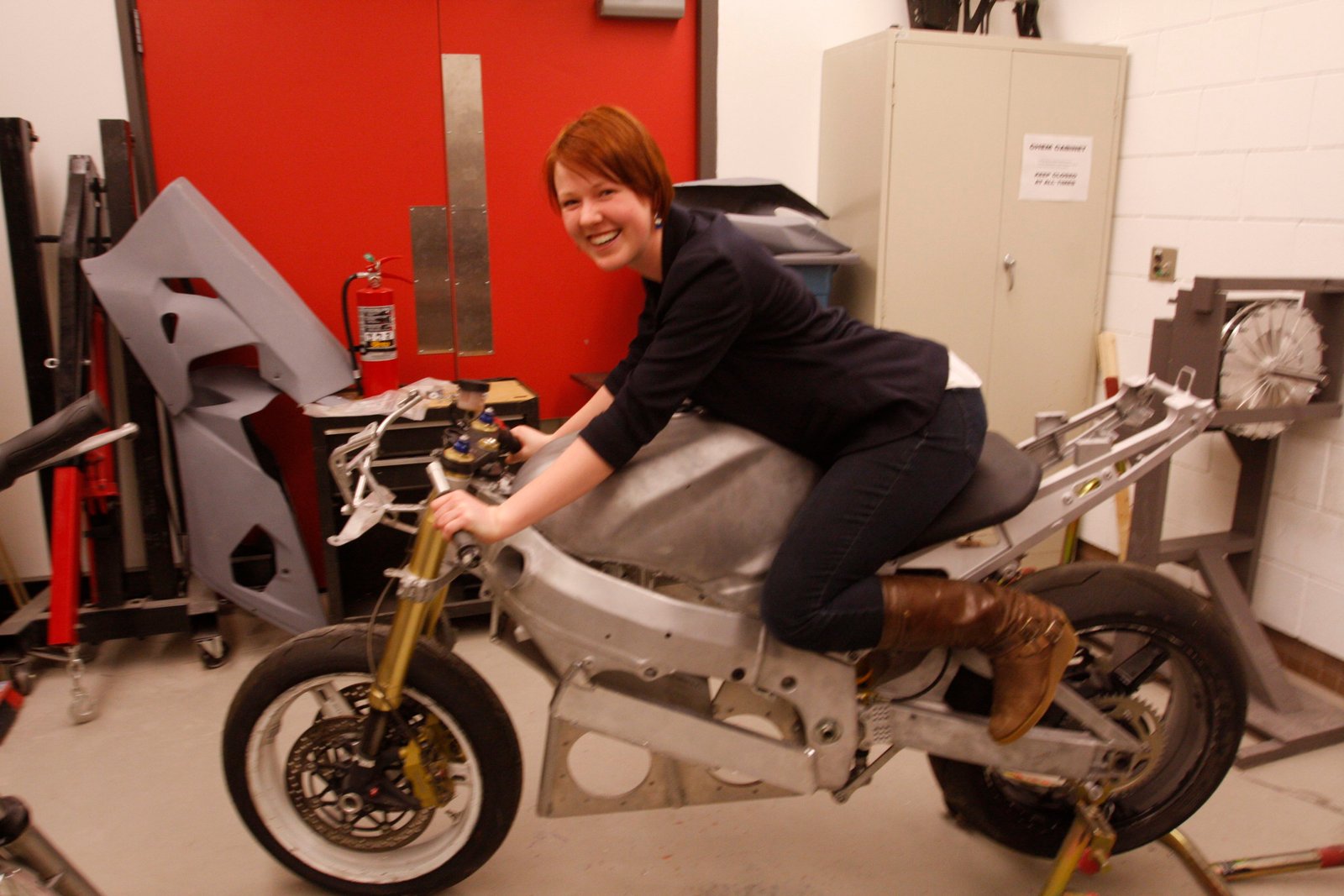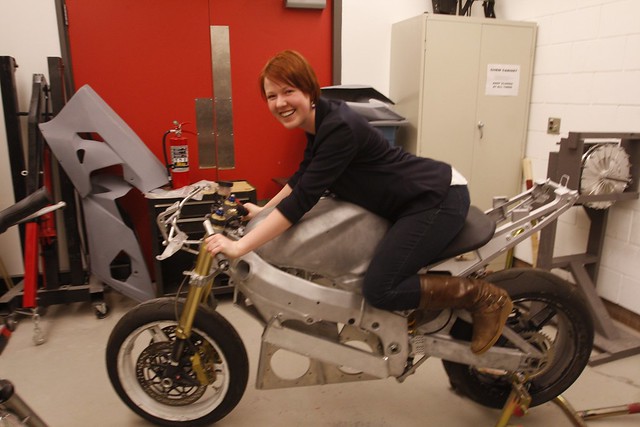By David Dodge and Duncan Kinney
If you go to the University of Calgary you don’t suffer from a lack of choice when it comes to Students Union clubs. There are options for everything from swing dancing to politics to Bronies. But the most interesting club in our view is one called Team Zeus. It’s only three years old but these undergrads are building an electric racing motorcycle.
“For me I’ve always been really fascinated with electric vehicles. I like the idea of being involved with a new up and coming industry… There are still huge advancements being made every year,” says Siegfried Baumann, the past president of the group.
“I feel like if I worked with regular gasoline motorcycles I could work my entire life as engineer to increase the efficiency by one percent. Where as with electric vehicles it’s doubling every year, it’s a very exciting time.”
Baumann is a third year mechanical engineering student who just scored a yearlong internship with BMW’s electric vehicle division based mostly on his work with Team Zeus.
The group’s goal is to get their electric bike, called the Zephyr, on a racetrack this summer. It’s being built on a Suzuki GSXR 600 racing bike frame that’s been stripped down and rebuilt as an electric motorbike.
And the race they will be participating in isn’t some endurance race where we see who developed the best batteries. Like MotoGP and Formula One this is all about sexy machines going as fast as they possibly can. Team Zeus is aiming for a top speed of 160 km/h and a range of 20-30 kilometers.
The biggest difference between electric motorbikes and their gas-powered brethren is the transmission, or lack thereof.
“Most electric bikes don’t have a transmission at all they just directly connect the motor to chain so essentially so there’s no gear shifting. The torque is quite noticeable. Once you twist the throttle you go basically. It catches a lot of people by surprise the first time they ride it,” says Baumann.
The result is exhilarating: no gearshift, no pushing in the clutch, just instant power from the moment you twist the throttle.
The group got its start from watching the movie Charge. The documentary follows several teams on their way to the world’s first electric motorbike grand prix on the Isle of Man in 2009.
“We were all really inspired by this and we decided hey why don’t we do that. Our first prototype was done on a budget of a thousand dollars,” says president Christine Hughes.
It all started with the Mule
“We had an old bike that didn’t work, we took out all the mechanical parts, we had some batteries donated to us by the solar car team here. We used a motor from a washing machine essentially and put it all together and it ran that was really exciting for us.”
That old ‘82 Honda was dubbed the Mule. While it won’t win any races with a top speed of 20 km/h, the group proved it could build a working electric motorbike. If the Mule is the golf cart of electric bikes then the Zephyr is their Tesla.
The cost of the bike and getting to the race will be around $25,000 and they recently held a successful Kickstarter campaign that raised more than $4000 with the Schulich School of Engineering will partially match the funds. They’re also looking for sponsors.
They’ll be competing against groups that will spend hundreds of thousands of dollars on their bikes. But it’s not about the money or even the credits.
“It’s all extra-curricular but I think I’ve learned more from Team Zeus than from a lot of my courses,” says Hughes. “This is cutting edge, brand new technology. We’re actually getting in here with professionals who are doing the same thing and making the same mistakes we are.”
Hughes is a fourth year mechanical engineering student and she’s looking to take her Team Zeus experience and apply it to the next big up and coming industry, clean energy.
“A lot of the skills I’m learning are so transferable – How to manage your project, how to actually design something that will work. That’s been huge. And also learning on the electrical side of things I’m really interested in sustainable energy and the motors that we’re building have lots of applications. Wind turbines use the same kind of technology to generate power and I would love to get involved with wind energy or something similar,” says Hughes.
Electric motorcycles are already on the market and much like electric cars they’re marketed as sleek, sexy, environmentally friendly city runners. And advancements made on the track shouldn’t be discounted either. It’s because of F-1 racing that we have things like disc brakes and traction control. The advances made by the teams participating in these electric motorbike races in miniaturization, propulsion and battery technology could have massive knock-on effects in electric vehicles.


